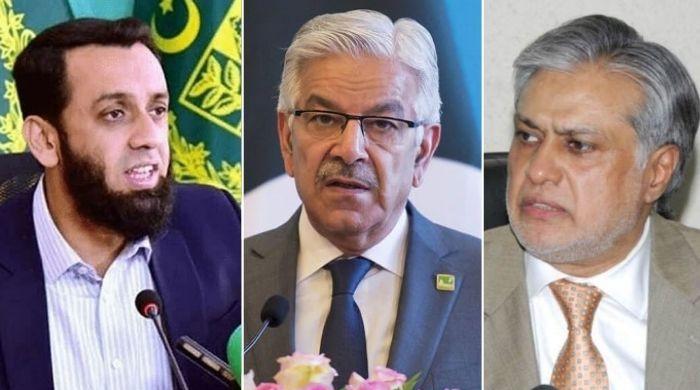Pakistan Condemns India’s Exploitation of Pahalgam Attack
Pakistan has strongly criticized India for allegedly exploiting the Pahalgam incident, where 26 tourists tragically lost their lives. Islamabad accuses New Delhi of using this event to suspend the Indus Waters Treaty for domestic political advantage. Pakistan warns that India is attempting to initiate a “hydro war” without conducting a proper investigation or providing any concrete evidence.
India has linked Pakistan to the attack without presenting substantiating proof and has taken several punitive actions, including suspending the Indus Waters Treaty, invalidating Pakistani visas, and closing the Wagah-Attari border crossing.
Pakistan has retaliated to these measures and cautioned about the potential suspension of the Simla Agreement, along with the closure of its airspace to Indian flights. Islamabad has refuted any involvement in the attack and has proposed participating in a credible and transparent investigation.
Prime Minister Shehbaz Sharif, while denouncing the unfortunate incident, has offered to engage in any impartial, transparent, and credible inquiry into the matter.
Defense Minister’s Remarks
Defense Minister Khawaja Asif stated that India would not benefit from violating the Indus Waters Treaty, given its international guarantees. He highlighted that the treaty, brokered by the World Bank and signed in 1960, ensures water distribution between the two nations. Suspending the treaty could allow India to restrict water flow into Pakistan, impacting irrigation and drinking water supplies.
Water Rights and International Probe
“Where will India divert the water, as it can neither redirect nor halt its flow?” Asif questioned. He further noted India’s lack of response to Pakistan’s proposal for an international investigation into the Pahalgam incident, reiterating Islamabad’s readiness to participate in a transparent probe.
Asif emphasized that the entire nation stands united with its armed forces and is prepared to deliver a robust response to the Modi government, similar to the response following the Pulwama incident.
He cautioned that a conflict between the two nuclear powers would have serious repercussions for regional and global stability.
“Should matters escalate, there will be no turning back,” he warned, adding, “If Modi chooses escalation, we stand ready to pursue him relentlessly.”
He accused Modi of spreading misinformation, echoing tactics employed during the Pulwama incident. However, he affirmed Pakistan’s strength and capability to respond effectively.
Information Minister’s Briefing
Separately, Minister for Information Attaullah Tarar addressed foreign journalists regarding India’s actions, asserting Pakistan’s capability to respond decisively to any Indian misadventure, as demonstrated in the past.
“It appears the entire episode revolves around water, a vital resource,” he stated, condemning India’s unilateral suspension of the Indus Waters Treaty.
He described the treaty’s suspension as an “immature and childish” action by India.
Citing international law principles, he emphasized that treaties require mutual consent for revocation, suspension, or termination.
He cautioned that targeting Pakistan’s water supply, critical for its agricultural sector, would constitute an “act of usurpation, an unfair and unjust measure.”
Tarar reaffirmed Pakistan’s position: “The Prime Minister and National Security Committee have clearly stated that any attempt to divert or halt Pakistan’s water will be met with full force and power.”
The minister urged India not to misinterpret Pakistan’s stance as a sign of weakness.
“Let me reiterate, they should not perceive our words as weakness. Pakistan has consistently defended itself and will continue to do so,” he stated, referencing Pakistan’s response following the Pulwama incident.
Referring to the Pulwama incident of February 2019, the minister said India has tested “our patience in the past and we passed it with flying colors and India was left to regret.”
Regarding the attack on the Pakistani High Commission in London, Tarar attributed it to India’s extremist ideology, which incites attacks on foreign missions. He suggested that India had preconceived notions about the Pahalgam incident, possibly intending to blame Pakistan.
He dismissed India’s allegations against Pakistan as baseless, noting that the Pahalgam area is far from the Line of Control and that India has not provided any credible evidence to support its claims.
Diplomatic Efforts
Deputy Prime Minister and Foreign Minister Ishaq Dar communicated with British Foreign Secretary David Lammy and Chinese Foreign Minister Wang Yi, briefing them on India’s unilateral actions and the regional situation, according to the Foreign Office.
During his conversation with Lammy, Dar addressed India’s unsubstantiated propaganda, false accusations, and its unlawful suspension of the Indus Waters Treaty—a violation of international obligations.
He reiterated Pakistan’s commitment to defending its national interests while fostering peace and stability. Lammy emphasized the need for de-escalation through dialogue, and Dar conveyed Pakistan’s willingness to engage in an independent and transparent investigation.
In his call with Wang Yi, Dar conveyed appreciation for China’s continuous support and denounced India’s unilateral actions and propaganda. Both leaders reaffirmed close coordination and their dedication to maintaining regional peace and stability.



Comments (0)
No comments yet. Be the first to comment!
Leave a Comment